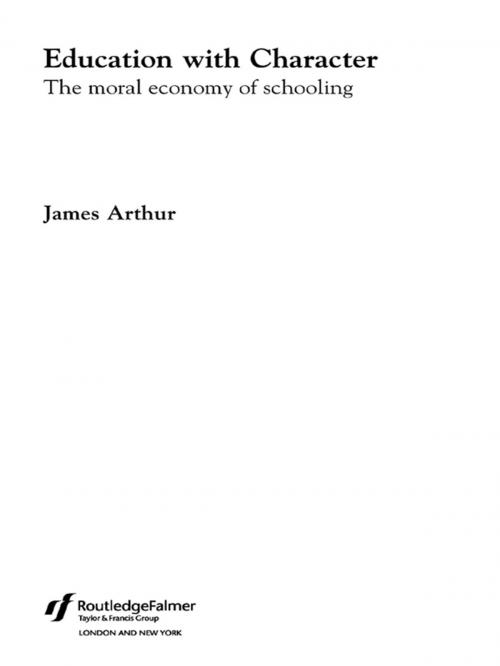| Author: | James Arthur | ISBN: | 9781134471836 |
| Publisher: | Taylor and Francis | Publication: | August 29, 2003 |
| Imprint: | Routledge | Language: | English |
| Author: | James Arthur |
| ISBN: | 9781134471836 |
| Publisher: | Taylor and Francis |
| Publication: | August 29, 2003 |
| Imprint: | Routledge |
| Language: | English |
The establishment of citizenship education as a compulsory subject has recently been accompanied by the government's policy of 'promoting education with character.' Schools are identified as having a crucial role to play in helping to shape and reinforce basic character traits that will ultimately lead to a better society. This radical new policy is explicitly linked to raising academic standards and to the needs of the emerging new economy.
This book provides an introduction to character education within the British context by exploring its meanings, understandings, and rationale, through the perspective of a number of academic disciplines. The author examines character education from a philosophical, religious, psychological, political, social and economic perspective to offer a more detailed understanding of character education and what it can offer. He also considers how British schools can implement character education successfully and what lessons we can draw from the American experience.
This book will be of interest to academics, researchers, policy makers and teachers with responsibility for citizenship education in their schools.
The establishment of citizenship education as a compulsory subject has recently been accompanied by the government's policy of 'promoting education with character.' Schools are identified as having a crucial role to play in helping to shape and reinforce basic character traits that will ultimately lead to a better society. This radical new policy is explicitly linked to raising academic standards and to the needs of the emerging new economy.
This book provides an introduction to character education within the British context by exploring its meanings, understandings, and rationale, through the perspective of a number of academic disciplines. The author examines character education from a philosophical, religious, psychological, political, social and economic perspective to offer a more detailed understanding of character education and what it can offer. He also considers how British schools can implement character education successfully and what lessons we can draw from the American experience.
This book will be of interest to academics, researchers, policy makers and teachers with responsibility for citizenship education in their schools.















